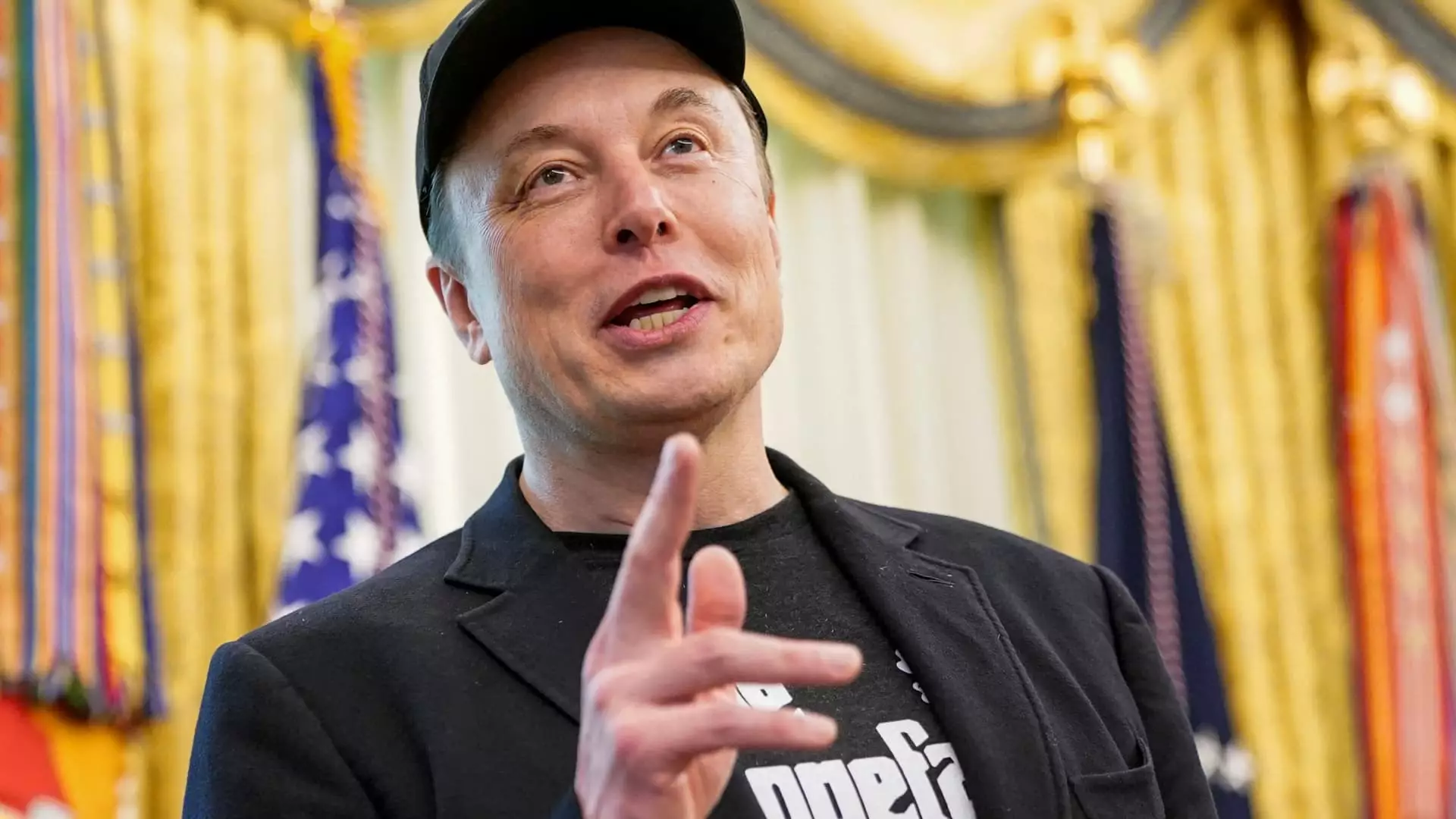In a stunning turn of events, the tech titan Elon Musk, typically known for his unwavering support of President Trump, denounced a recent tax-and-spending-cut bill as a “disgusting abomination.” His outcry, resonating across social media platforms, reveals not merely a disagreement with policy but a profound disillusionment with a system that often prioritizes short-term gains over long-term sustainability. The irony of Musk’s shift is palpable; a champion of free-market innovation, he finds himself at odds with pure fiscal libertarianism, advocating for a responsible approach to government spending that raises the pertinent question: At what cost does profit come?
The Budget Buildup
Musk’s bold claims that this legislation could inflate the federal deficit by an alarming $2.5 trillion have sparked discussions that go beyond the numbers. Critics often dismiss such figures as mere warnings of overzealous economists, yet Musk frames it as a moral failing of leaders—“Shame on those who voted for it.” The stark juxtaposition of Musk’s fierce rhetoric against the backdrop of an administration that routinely champions bold, sweeping bills poses a daunting challenge: how does one hold a governing body accountable while simultaneously navigating the treacherous waters of partisan politics?
The White House dismisses Musk’s concerns, insisting that the bill in question is a “beautiful” component of a grand vision for America. However, this response illustrates a common pitfall in modern political discourse—the tendency to conflate personal conviction with empirical evidence. Instead of substantive engagement, we witness a flippant disregard for constructive criticism, highlighting an unsettling reality: public trust is eroded when the political elite, comfortably ensconced in their political echo chambers, reject feedback from influential figures like Musk.
Political Allies and Adversaries
Interestingly, Musk’s critique has garnered unexpected allies among Republicans, such as Rep. Thomas Massie and Sen. Mike Lee. Their support frames Musk not merely as a commentator but as a messenger of cause and effect. This intersection of technological vision and fiscal conservatism opens avenues for a more nuanced conversation about government spending and its implications for the middle class. It’s a coalition that transcends traditional political lines, chaining together individuals who recognize the shared danger of reckless fiscal policies.
Musk’s observation that inflation and excessive spending have hollowed out the middle class reverberates through economic discussions, urging the need for a refreshingly honest examination of fiscal policies from both sides of the aisle. When leaders like Musk voice discontent, it should serve as a wake-up call—not just for Republicans but for liberals who are often too quick to dismiss critiques coming from the right.
The Broader Implications
Contemplation of Musk’s comments begs consideration of broader implications: the power dynamics intertwined with economic decisions. By framing budget deficits as public enemy number one, Musk emphasizes the sanctity of fiscal responsibility. This transformation, from a cherished ally of Trump to an unexpected critic of governmental policy, signals a critical moment in American politics. It brings to light the complex relationship between capitalism and governance, an interplay that demands scrutiny when those at the helm frequently pay lip service to free markets while engaging in expansionary fiscal maneuvers.
Critically, if Musk, a billionaire entrepreneur celebrated for disrupting industries, can pivot from a position of support to dissent, what does that mean for everyday citizens? It raises a fundamental question: Are we mere spectators in a financial drama where corporate and governmental alliances repress the voices of the middle class?
This narrative is not merely about Musk’s latest tirade; it encapsulates a growing disillusionment with dogmatic adherence to party lines that often serve leaders more than they serve citizens. When influential figures like Musk take a stand, it invites us all to engage in a conversation about the merit and consequences of our legislation. In doing so, we pave the way for a more equitable and sustainable future.

Leave a Reply